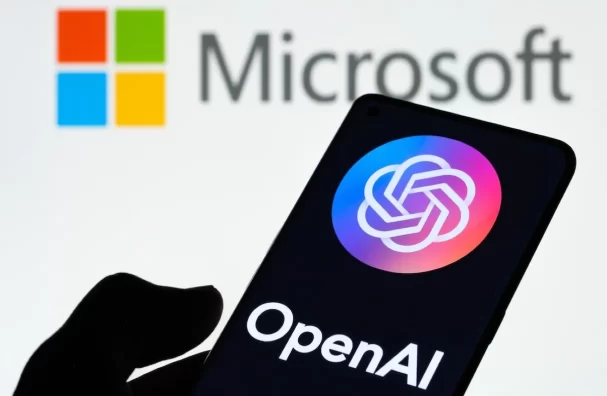
In the relentless race for technological dominance, even industry titans like Microsoft can succumb to the pangs of envy and the fear of being left behind. Emails uncovered during the Department of Justice’s antitrust case against Google have shed light on the driving force behind Microsoft’s pivotal partnership with OpenAI – a burning desire to catch up with its rival’s rapidly advancing artificial intelligence (AI) capabilities.
As Google’s AI prowess grew, alarms bells rang within the corridors of Microsoft’s executive suites. In a 2019 email thread aptly titled “Thoughts on OpenAI,” Microsoft’s Chief Technology Officer (CTO), Kevin Scott, laid bare his deep-seated worries about the company’s ability to keep pace with Google’s AI advancements.
“I got very, very worried,” Scott confessed, recounting how he initially dismissed Google’s early achievements in game-playing AI as mere “stunts.” However, as the search giant’s natural language models, like the groundbreaking BERT-large, began to outpace Microsoft’s capabilities, Scott’s concerns intensified.
Scott’s email revealed the stark reality that Microsoft faced: replicating Google’s BERT-large model, a feat that deciphered the meaning and context of words in a sentence, proved to be a herculean task. Despite having the model’s template, it took Microsoft a staggering six months to train the model, primarily due to the company’s infrastructure limitations.
“Google had BERT for at least six months prior to that, so in the time that it took us to hack together the capability to train a 340M parameter model, they had a year to figure out how to get it into production and to move on to larger scale, more interesting models,” Scott lamented, underscoring the widening gap between the two tech giants.
Recognizing the gravity of the situation, Microsoft CEO Satya Nadella forwarded Scott’s email to Chief Financial Officer Amy Hood, emphasizing the need for swift action. “Very good email that explains, why I want us to do this … and also why we will then ensure our infra folks execute,” Nadella wrote, setting the stage for Microsoft’s billion-dollar investment in OpenAI.
Scott’s email shed light on the limitations that had hindered Microsoft’s AI ambitions. Despite boasting “very smart” people on its machine learning teams, their aspirations were curbed by the company’s constrained resources and infrastructure capabilities.
“But the core deep learning teams within each of these bigger teams are very small, and their ambitions have also been constrained, which means that even as we start to feed them resources, they still have to go through a learning process to scale up,” Scott acknowledged, underscoring the need for a strategic partnership to bridge the gap.
Microsoft’s investment in OpenAI, the AI research company founded by Sam Altman, proved to be a game-changer. The initial billion-dollar investment in 2019 paved the way for a fruitful collaboration that has since blossomed into a $13 billion partnership, propelling Microsoft’s AI capabilities to new heights.
While the OpenAI partnership has yielded groundbreaking AI advancements, such as the highly capable language model ChatGPT, it has also raised concerns about the potential impact on the labor market and the risks of misuse for malicious purposes, such as the spread of disinformation.
As the technology continues to evolve, striking the right balance between harnessing its potential and mitigating its risks will be a crucial challenge for both Microsoft and the broader AI community.
Microsoft’s journey from envy-fueled anxiety to a formidable AI partnership with OpenAI serves as a testament to the relentless pursuit of technological superiority. As the AI race intensifies, with companies like Google, DeepMind, and others pushing the boundaries of what’s possible, the need for strategic alliances and continuous innovation becomes paramount.
In this ever-evolving landscape, embracing collaboration and fostering ethical AI development practices will be crucial for ensuring responsible progress. Companies like Microsoft and OpenAI must lead by example, demonstrating a commitment to transparency, accountability, and the ethical application of AI technologies.
As AI continues to advance at an unprecedented pace, its impact on various sectors, from healthcare and education to finance and transportation, will be profound. However, alongside the boundless potential, there will be societal implications that must be carefully navigated, such as the potential displacement of human labor and the need for robust safeguards against misuse.
By staying vigilant, fostering cross-industry collaboration, and prioritizing ethical AI development, companies like Microsoft and OpenAI can shape a future where AI serves as a powerful tool for human progress, while mitigating its potential risks and negative consequences.
